Len Birch - Army Life
Len Birch's life and the lives of those close to him were heavily influenced by military matters.
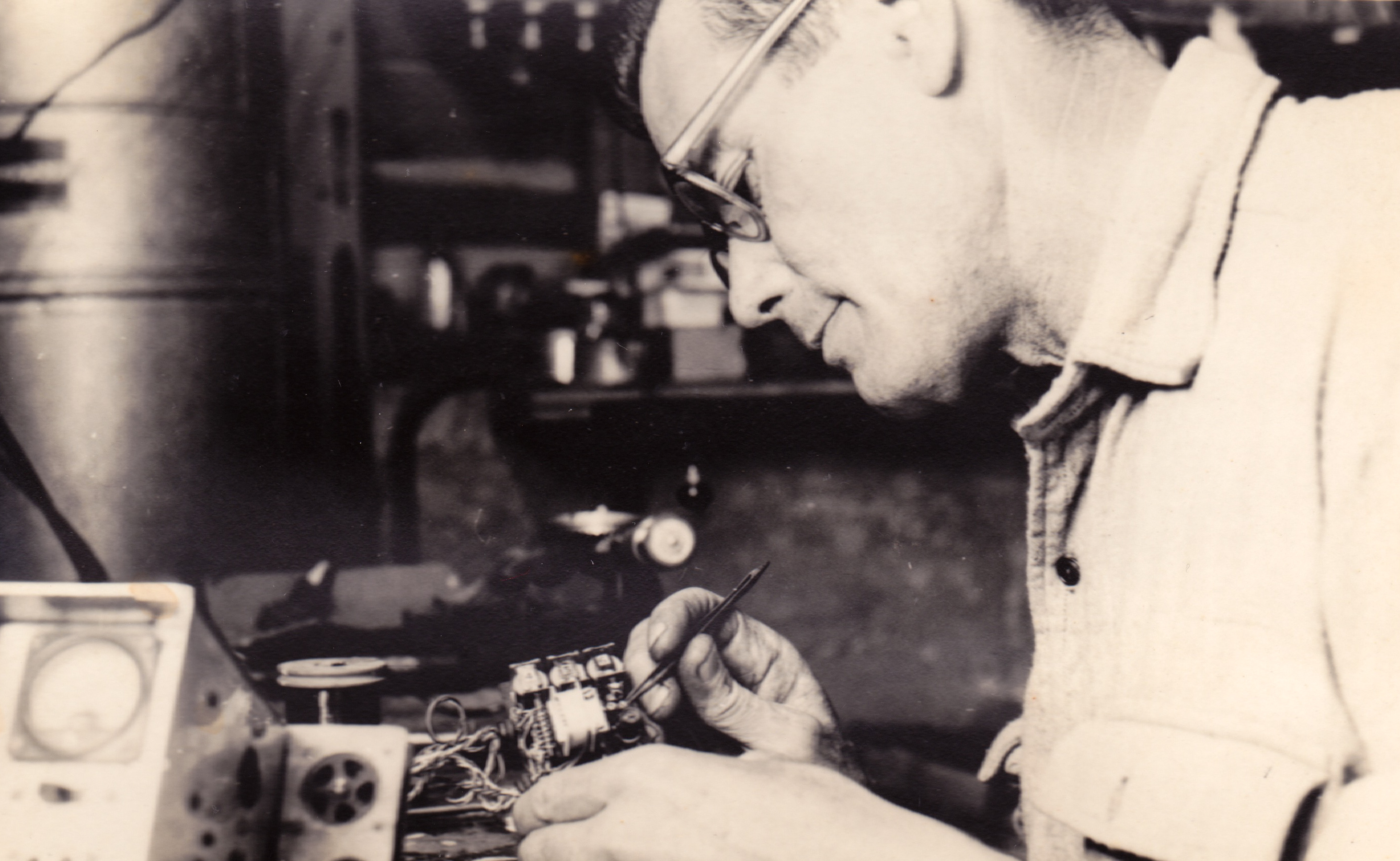
Early life in Burma
Len was the third of three sons. He was born in Akyab (now Sittwe) in Burma (now Myanmar) on Tuesday 1 Feb 1910 and christened at St Mark's Church on Valentine's Day 14 Feb 1910.
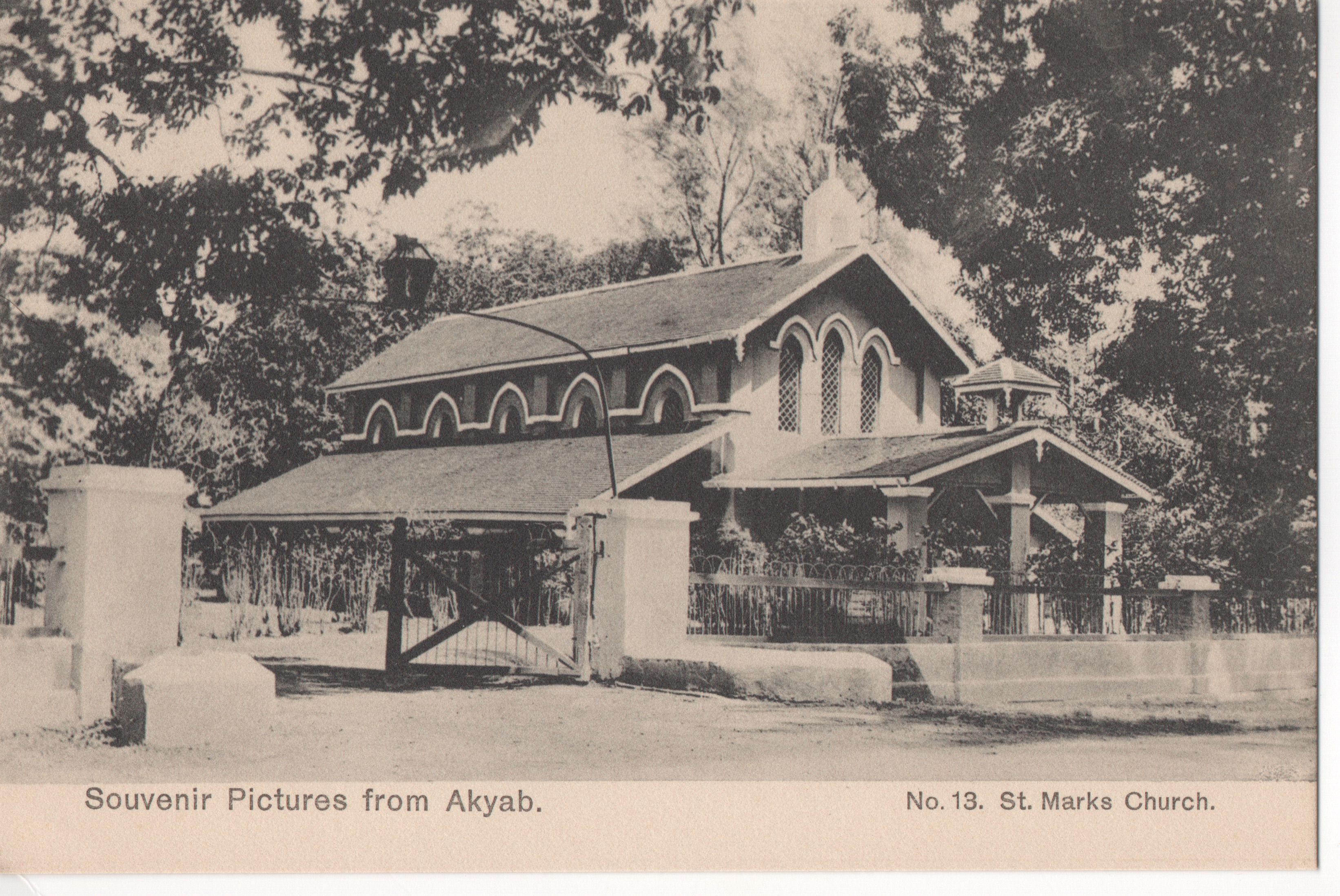
The family was: father William Eli Birch, mother Annie Janet Waterlow, and his older brothers William (born 1905) and Ralph (born 1907). Within months his father was at the Royal Victoria Hospital in Netley, Hampshire, England to treat an anuerism of the aorta. William Eli died on 22 Dec 1911 of "Anuerism of Aorta (6 months). Bronchs-pneumonia and exhaustion (1 month)".
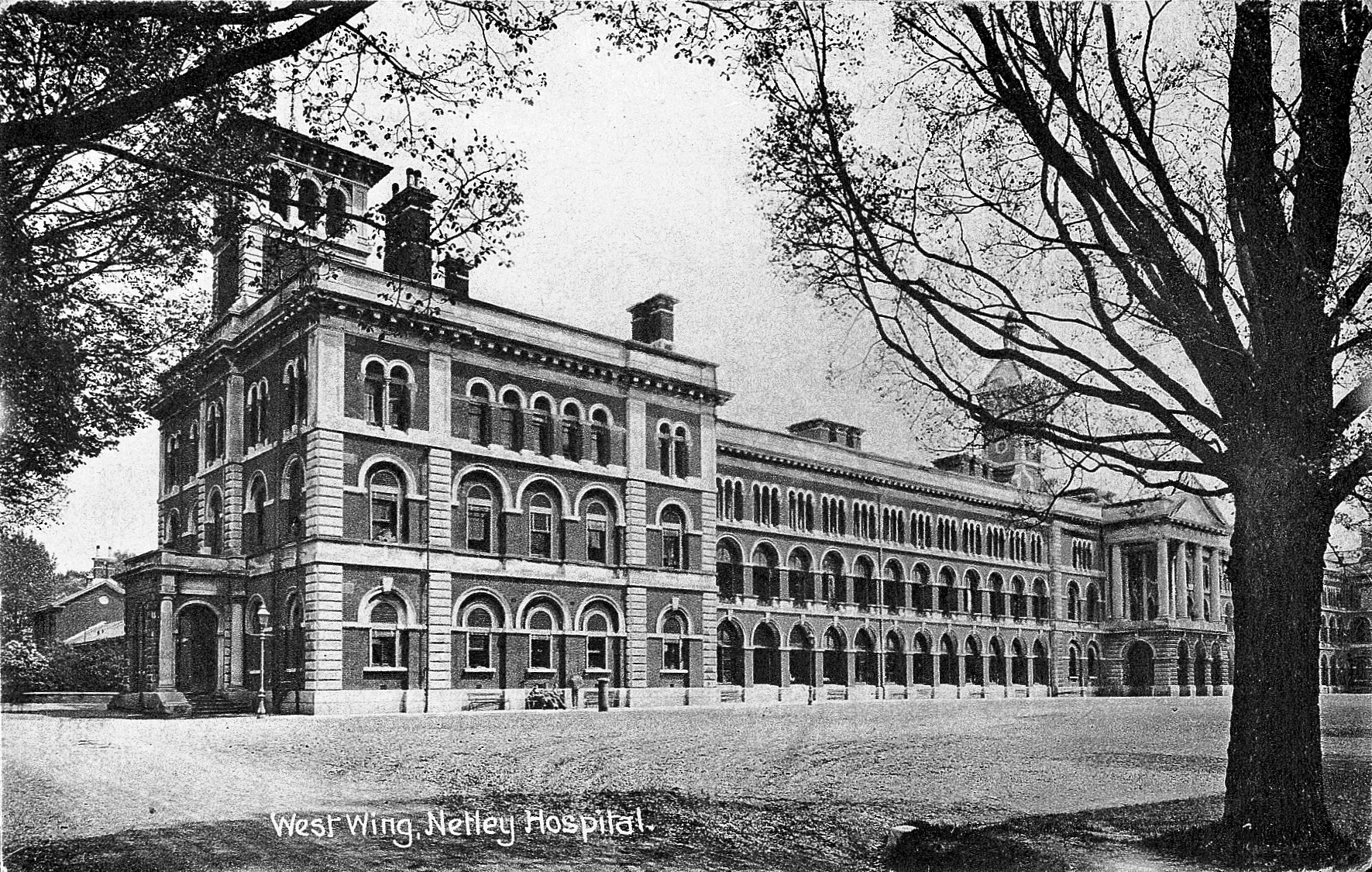
Before we explore Len's military career let's take a look at the military career of his father William Eli Birch.
William Eli Birch and the Boer War
When William was at the Royal Victoria Hospital he was likely being treated alongside other patients had also served in the Boer War (South Africa 1898-1901).
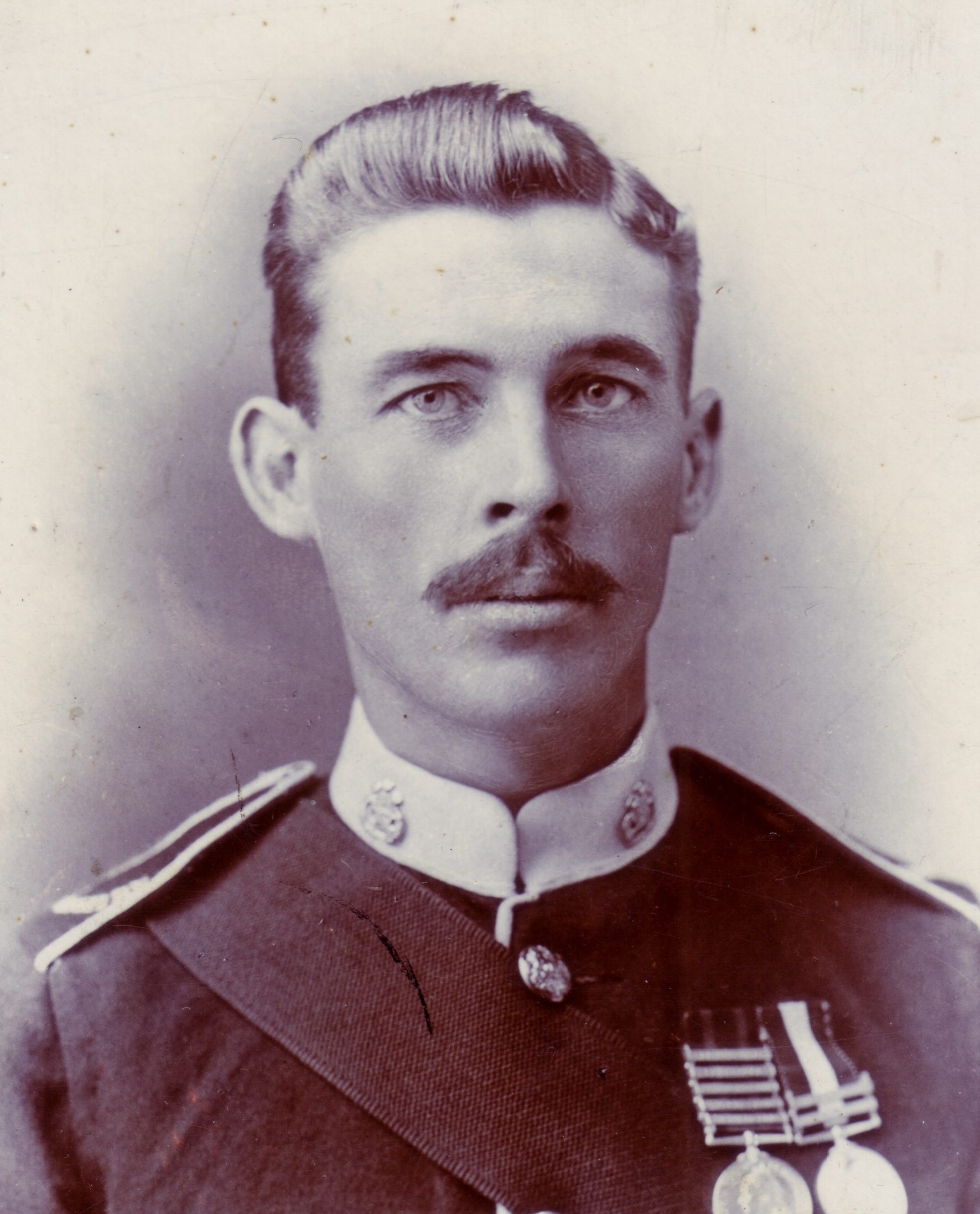
William was born on Friday 25 Aug 1876 in the brewery town of Burton Upon Trent in Staffordshire. He was the second oldest child of Tom Birch and Jane Coulton. Presumably the "Eli" middle name so diligently recorded on all documents came from either Eli Turner, who was a witness (likely best-man) at his parent's wedding, or Eli Birch who is also recorded as a 24 year old "Boarder" and "Brewers Laborer" in the same household as William's family in the 1881 Census.
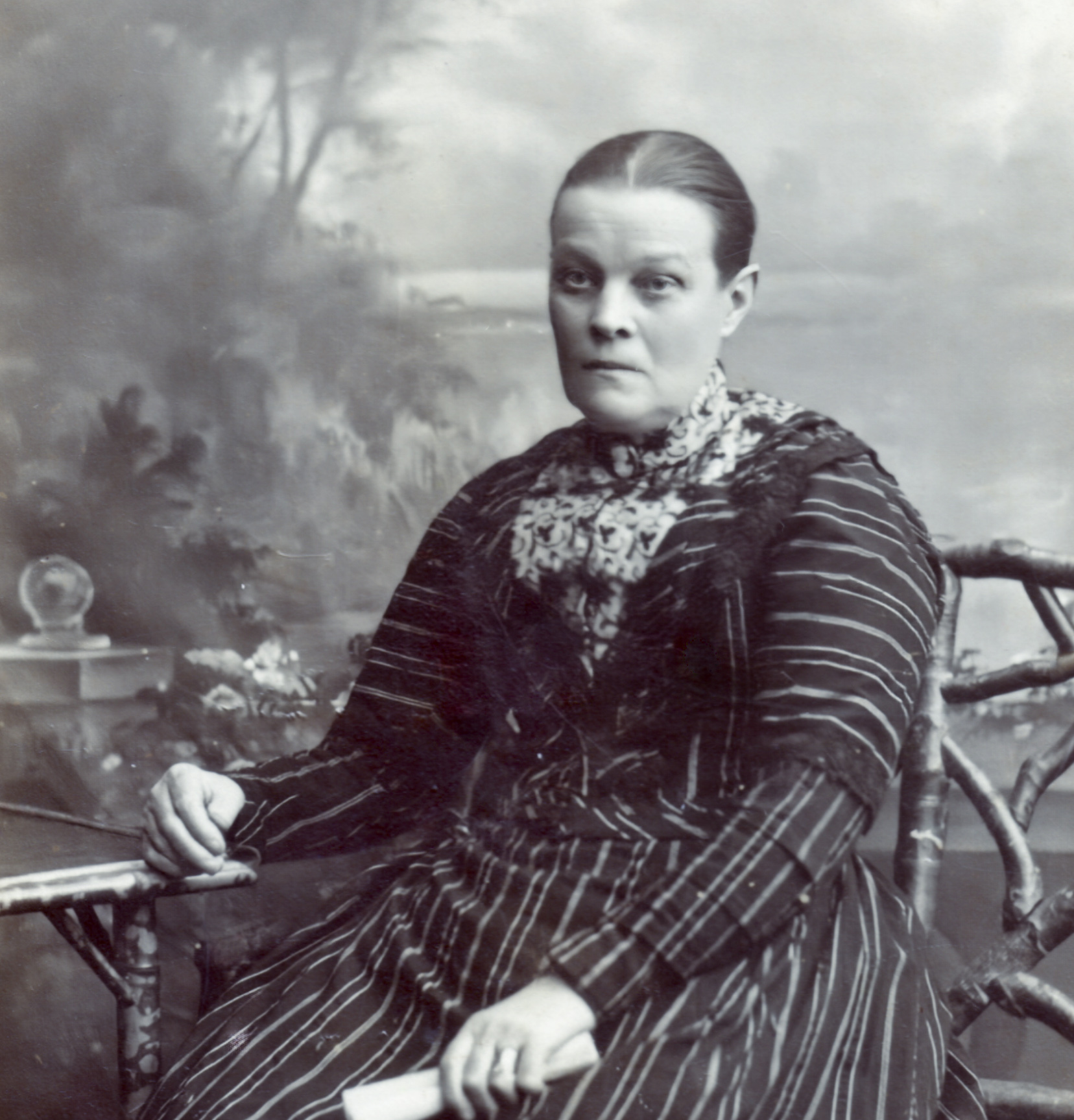
William Eli's father, Tom Birch, was born on 25 Apr 1855 to Mary Birch (nee Ward) after the death of his father Thomas Birch on 24 Oct 1854 aged 26. William Eli's grandfather Thomas had been a "sinker" in a coal mine and "accidentally drowned in the water at the bottom of a shaft now making". On 6 Nov 1854 (less than two weeks later) Thomas Birch's son also called Thomas ("Son of Thomas Birch a Collier (Deceased)") died of "Marasmus [form of severe protein-energy malnutrition] 6 weeks Certified". So when William Eli's father Tom was born Mary had six months earlier lost her husband and only son. In a turn of events that would be echoed with his own son and grandsons, Tom was recorded in the 1871 Census as a 16 year old lodging labourer living with his uncle John Birch, as his mother appears to have remarried.
In the 1891 Census William was aged 14 and a "General Labourer", so he had left school and was working just like his older brother Thomas and father Tom. When the Second Boer War started in October 1899 William joined up with the 1st South Lancashire Regiment. The Boer War required the British to adapt to the conditions in South Africa ("Red Roses On The Veldt: Lancashire Regiments in the Boer War, 1899-1902" by Lieutenant-Colonel John Downham is an excellent source for additional info, there is even a photo on page 269 showing the "coloured sergents" that I suspect shows William), and so William trained as a horseman.
_c1902.jpg)
There are quite a few documents of William's military service that were looked after by his eldest son William Thomas, then Len, and now Lenna. One example nicely summarizes his service in The Boer War: This is to certify that No 5471 Sergt W. Birch 1st South Lanc Regt has served in the Mounted Infantry during the South Africans Campaign from 20th August 1900 to 31st August 1902 and that he has a very good knowledge of all the duties of this branch of the Service, both in Camp and in the Field and is an excellent Section Sergeant. R. Butler Major, Commanding 10th Reg MI
William was awarded the King's South Africa Medal and was "entitled to clasp" (meaning he was "actually present at the operations): Orange Free State, Transvaal, Tugala Heights, Relief of Ladysmith, Laing's Nek.
And here is another document, this time when he was training at the Mounted Infantry School in Poona (now Pune, India). William became a "sergeant instructor" in India.
.jpg)
Following the end of the war in South Africa in 1902, the 1st battalion was sent to British India, where they replaced the 2nd battalion in Jubbulpore (now Jabalpur) in Bengal. The 2nd battalion returned home, for the first time since 1884. William travelled on the ship "Norman" to Southampton, UK from Natal, South Africa in 1903. In the ship's Passenger List he is listed as "Horseman". On 17 Oct 1904 at Christ Church in Jubbulpore he married Annie Janet Waterlow.
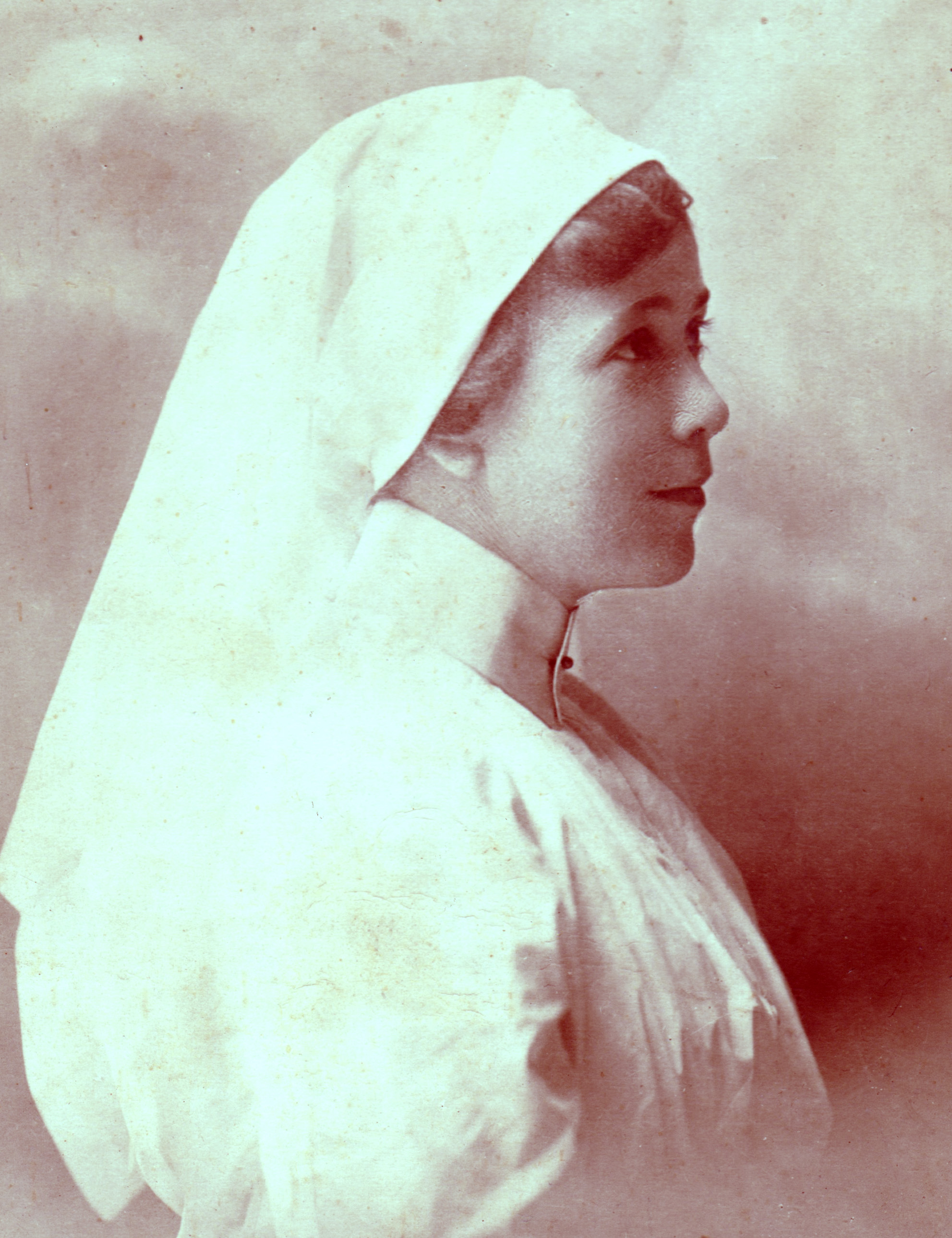
William's brother Arthur Albert Birch served in The Great War (WWI) and: joined the Staffordshire Bantams and went to Belgium in WW1, we do not know where he was captured but he was taken to a prisoner of war camp in Northern Germany and stayed there for the rest of the war. On release he and his pals had to walk most of the way home helped by very kind families on the way. After the war he became an engineer on the railways but was never well again after being gassed during the war, he contracted TB and died in 1931. [From family-tree researcher Peter Driver.]
.jpg)
Len's brothers: Willie and Ralph
Len joined the Royal Artillery as a 14 year-old "school boy" on 19 Feb 1924 in Meerut, Bengal, India (number 1055543). The photo below shows Len (on the left) with his brothers William (seated middle) and Ralph (on the right), presumably soon after joining.
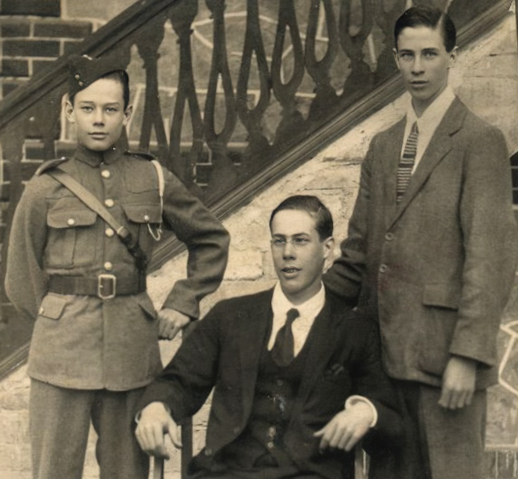
This next photo of Len's older brothers is interesting because it came from a postcard and the photo was taken in 1909 in Burton-on-Trent in England. So the family travelled from India to England at least once. "Dear Harry, with love from Annie & Will. What do you think of my gingers, eh?" "Taken 1909 Burton-on-Trent, Staff". ("Annie and Will" are Annie Janet (Waterlow) Birch and William Elijah Birch.)
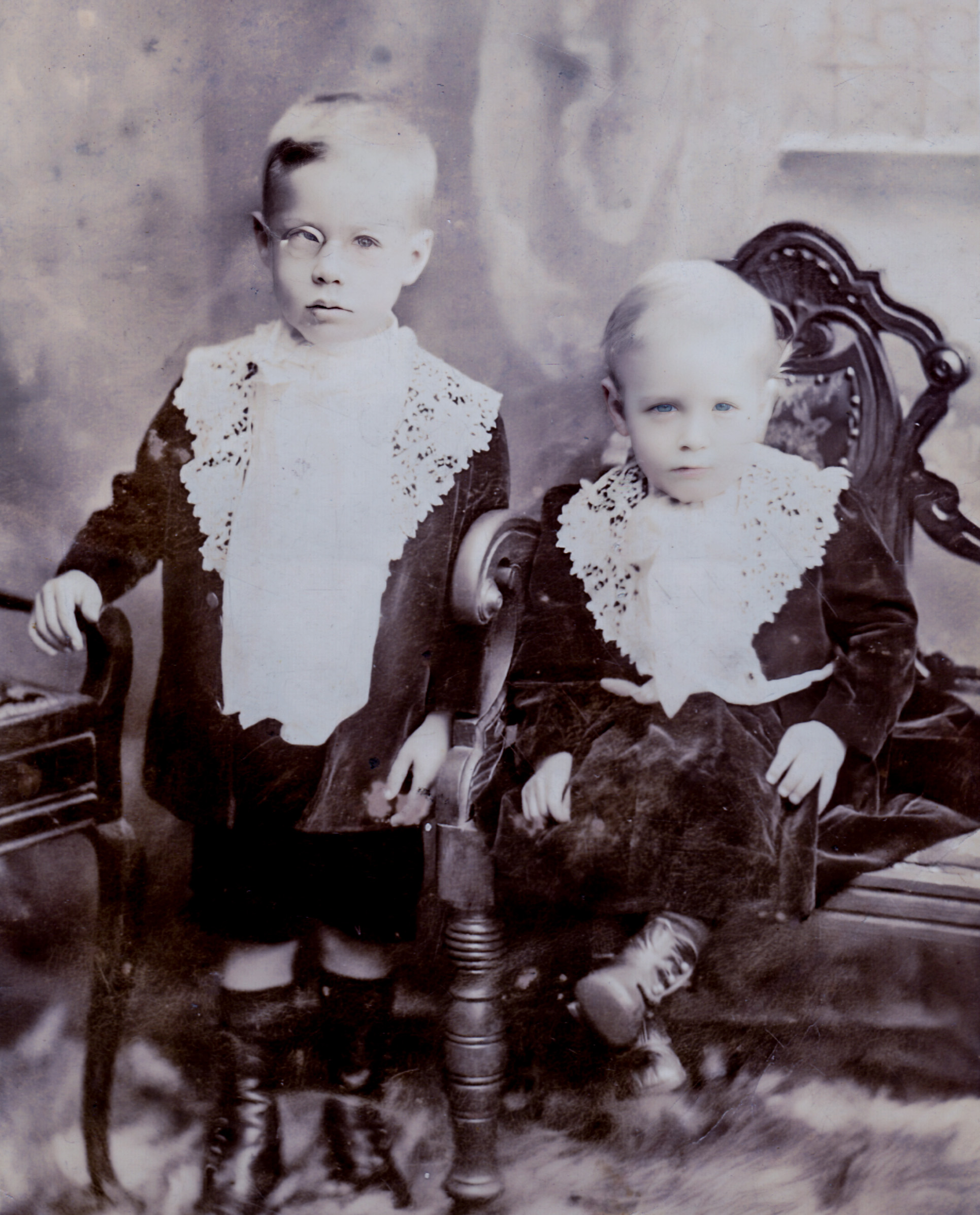
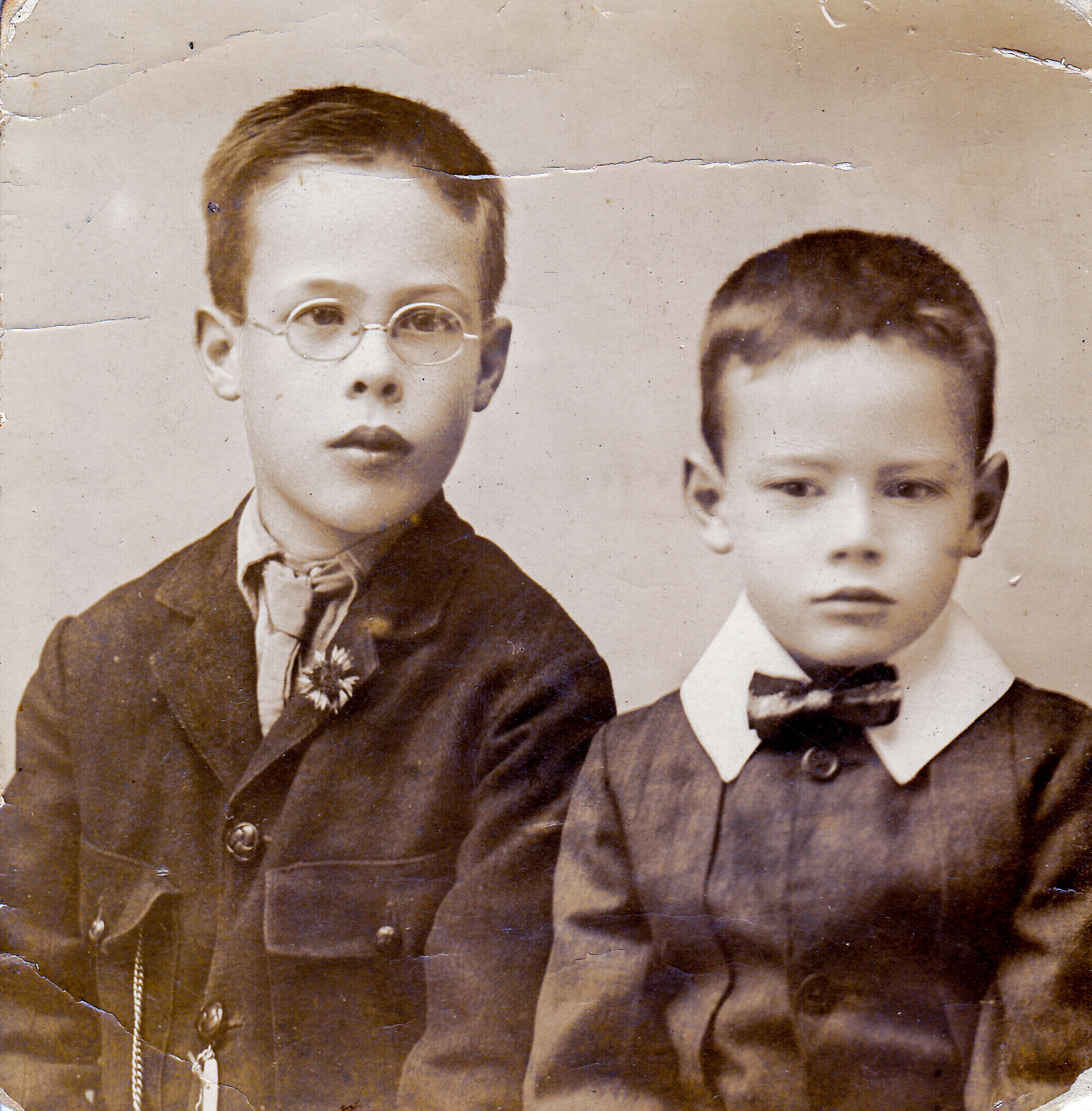
Len's oldest brother William Thomas Birch was in the artillery but most photos suggest he played a lot of hockey and rode around on motorbikes.
.jpg)
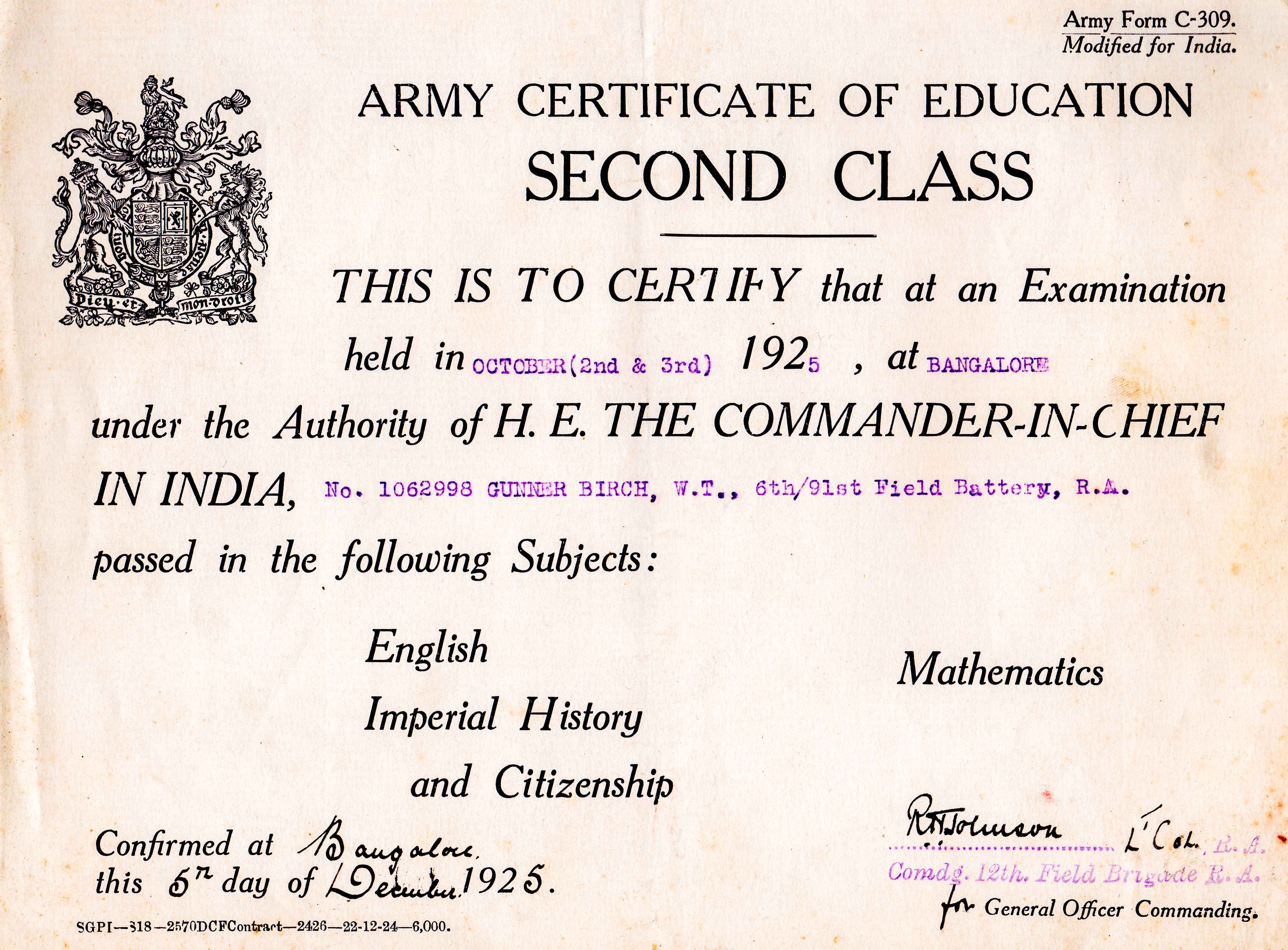
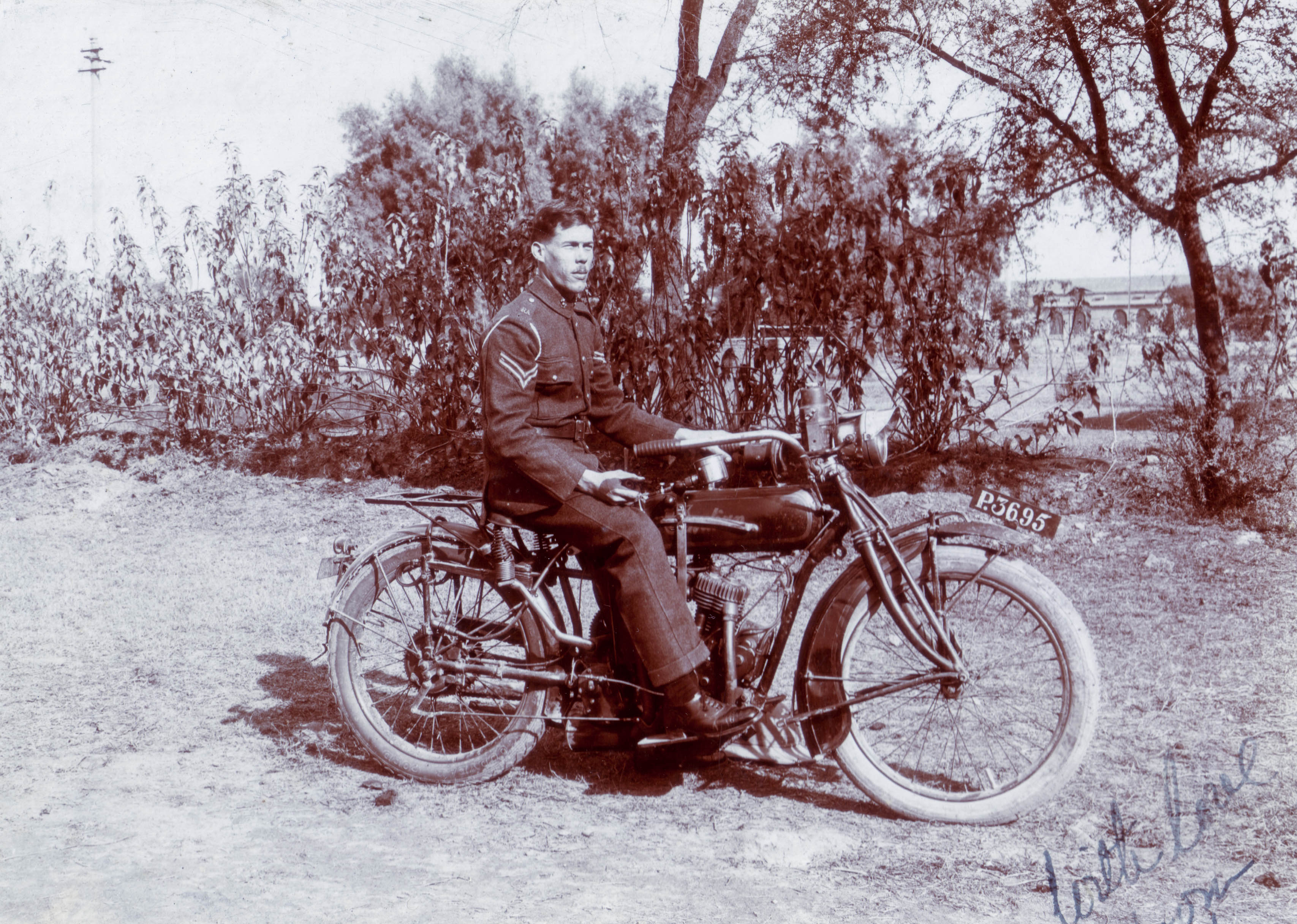
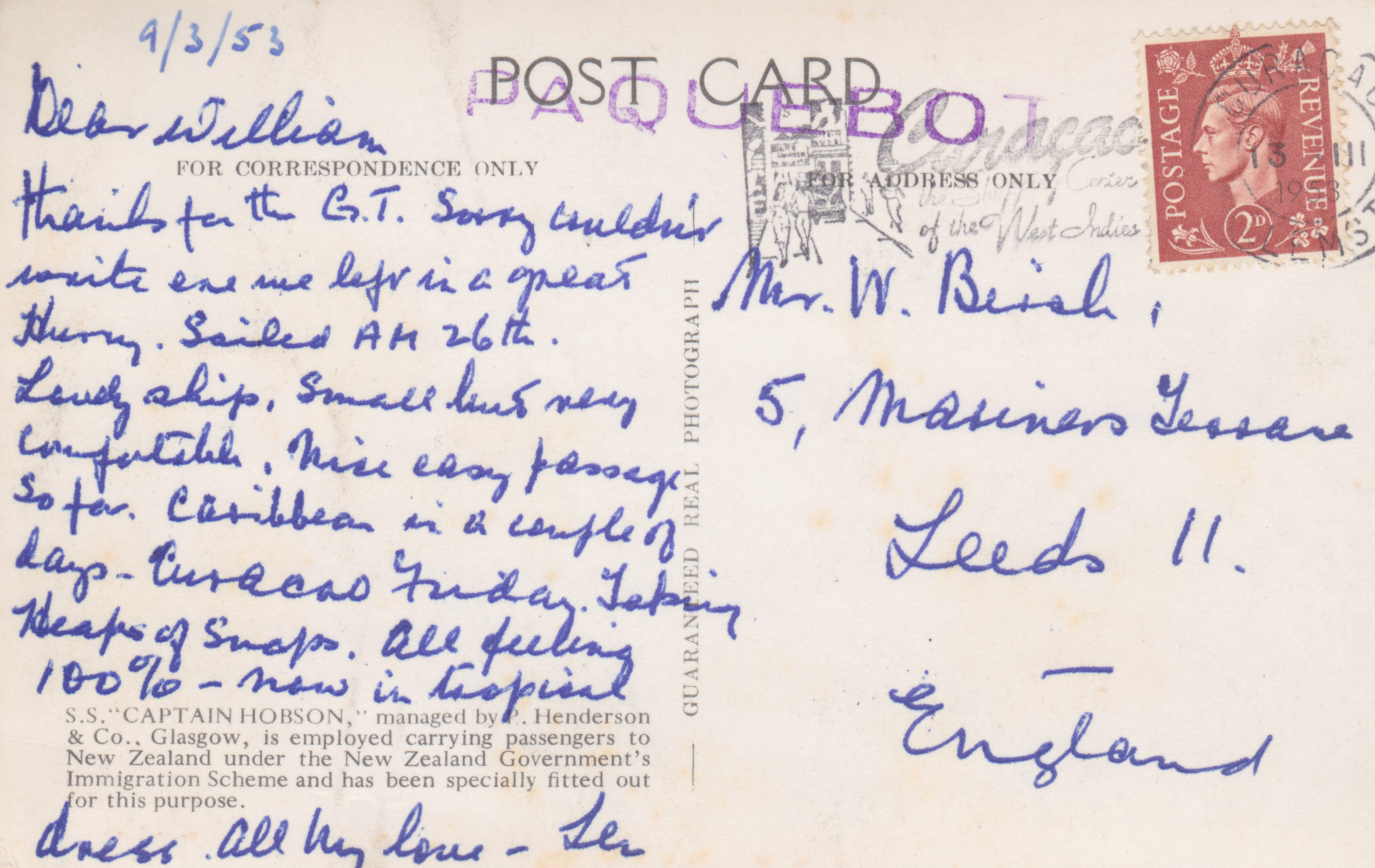
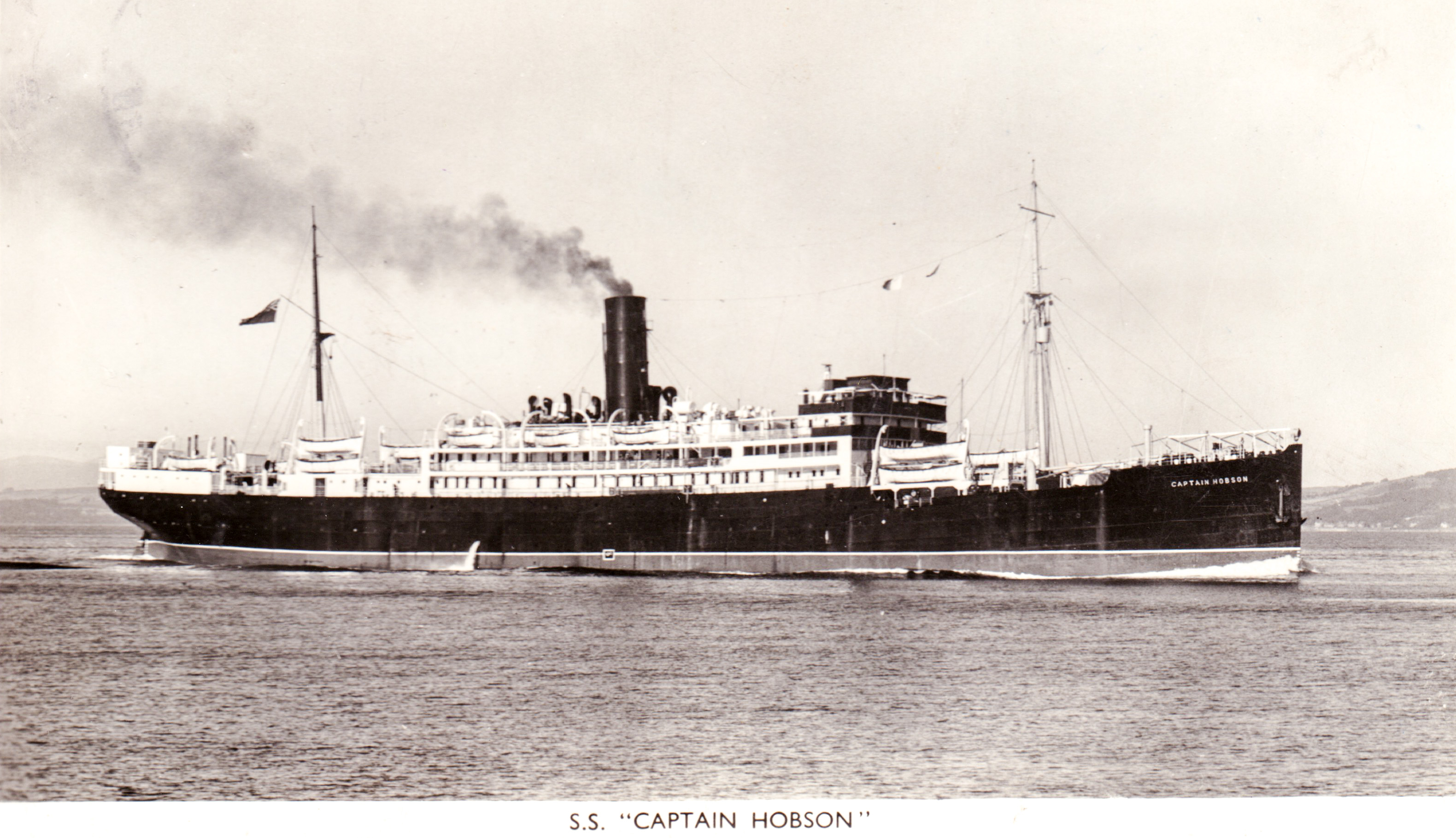
Len's other brother Ralph Henry Arthur Birch worked as an engineer on the Kathiawar ship. Unfortunately he died aged 24 at sea of "heart failure (tonsils and adenoids) on 29 Dec 1932. His last place of abode wass 32 Ripon St, Calcutta (now Kolkata).
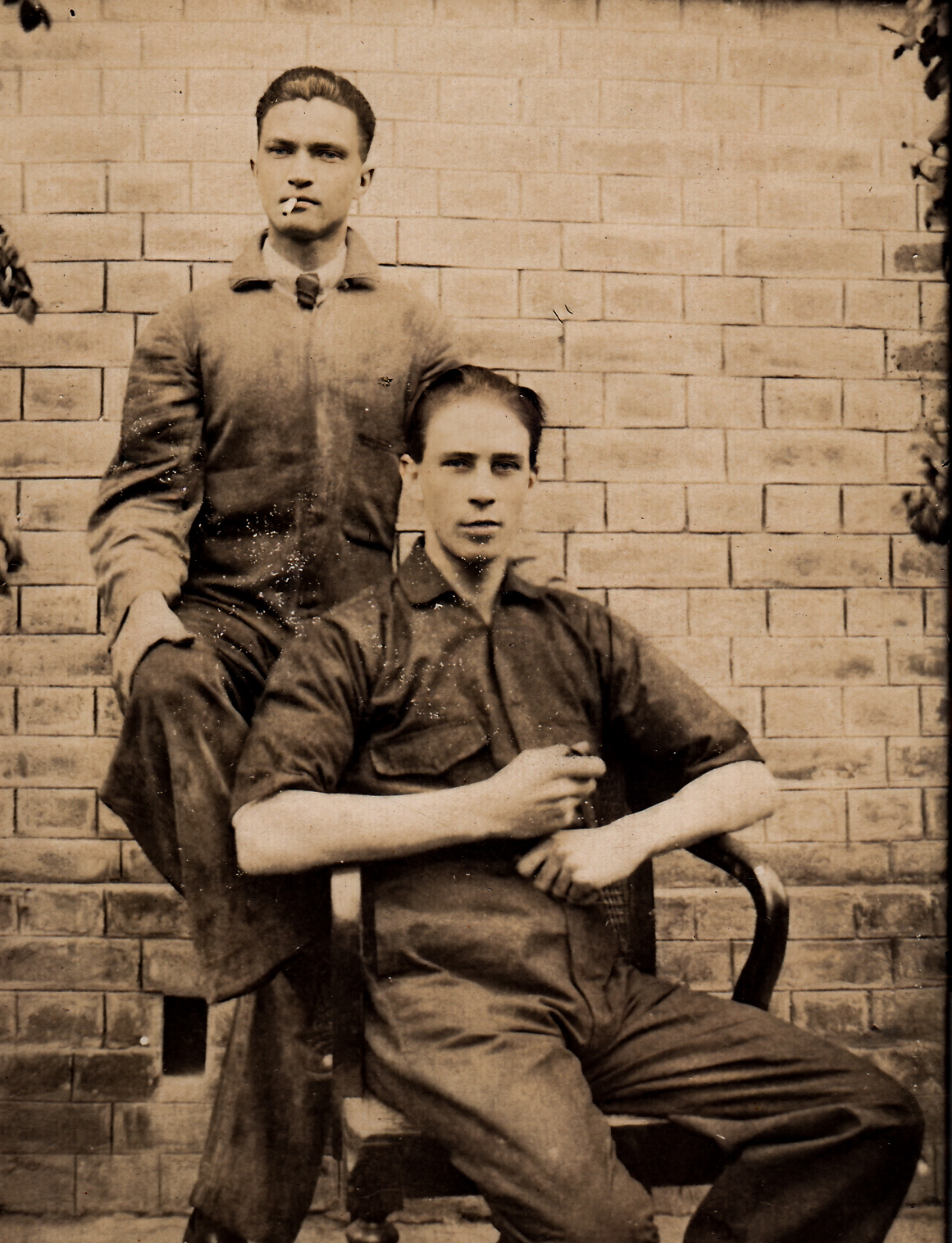
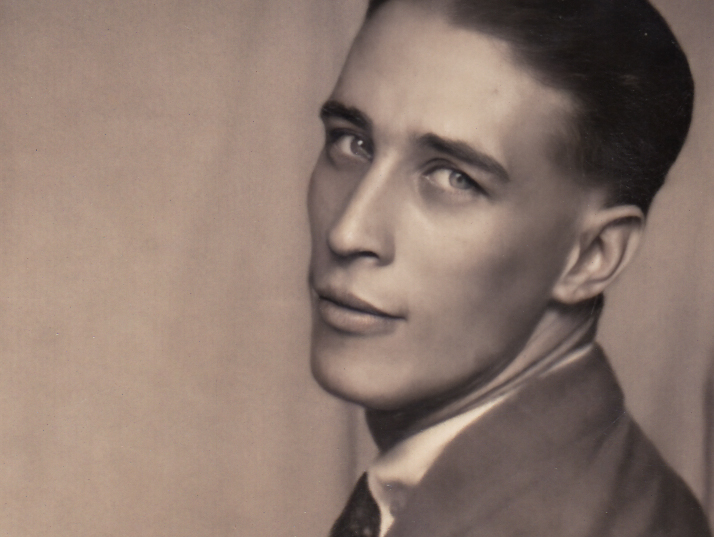
Captain Len Birch of the Royal Artillery
From 19 Feb 1924 (aged 14) until 26 Jan 1946 (aged 35, soon before his 36th birthday on 5 Feb) Len was in the Royal Artillery of the British Regular Army.
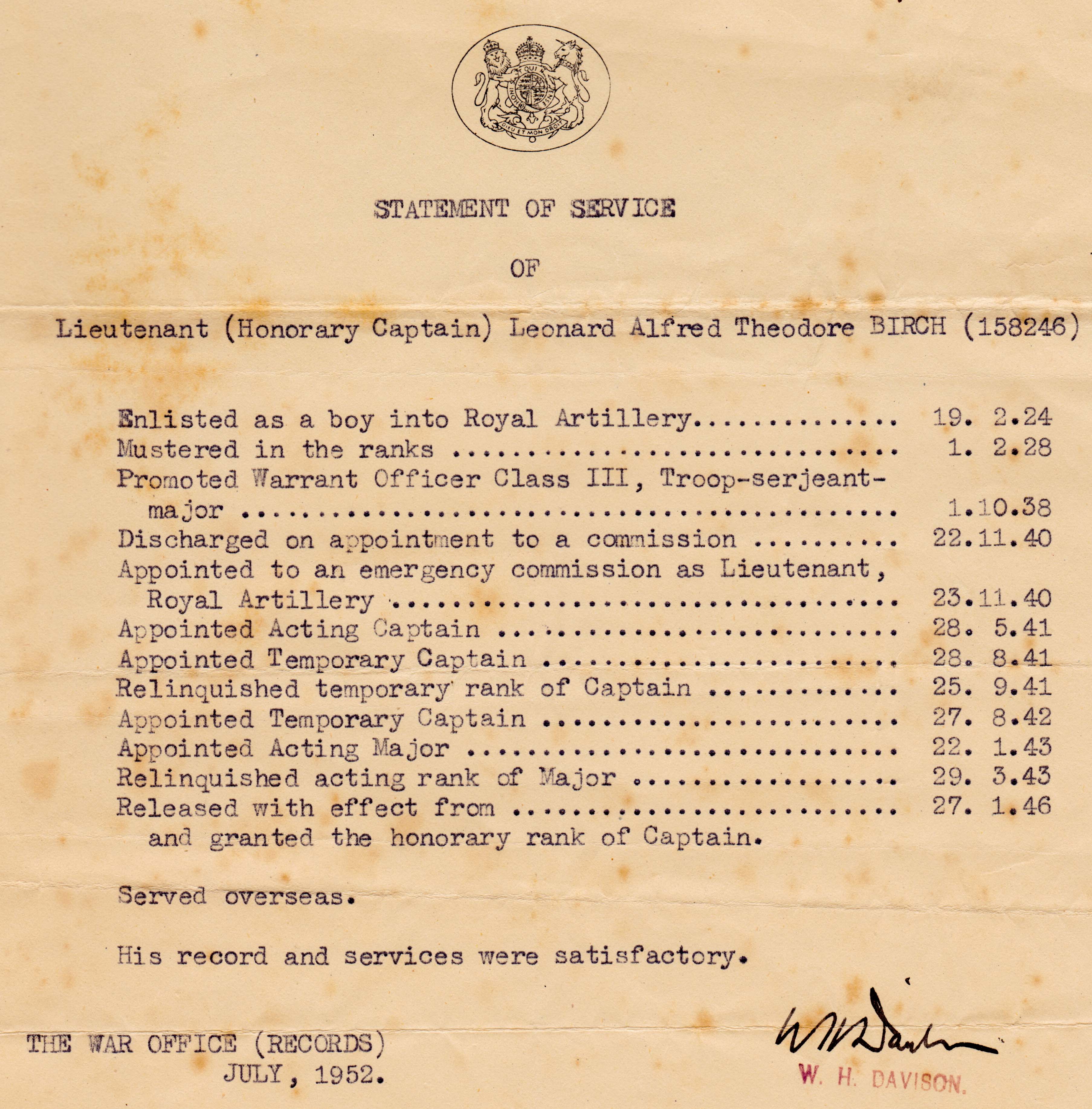
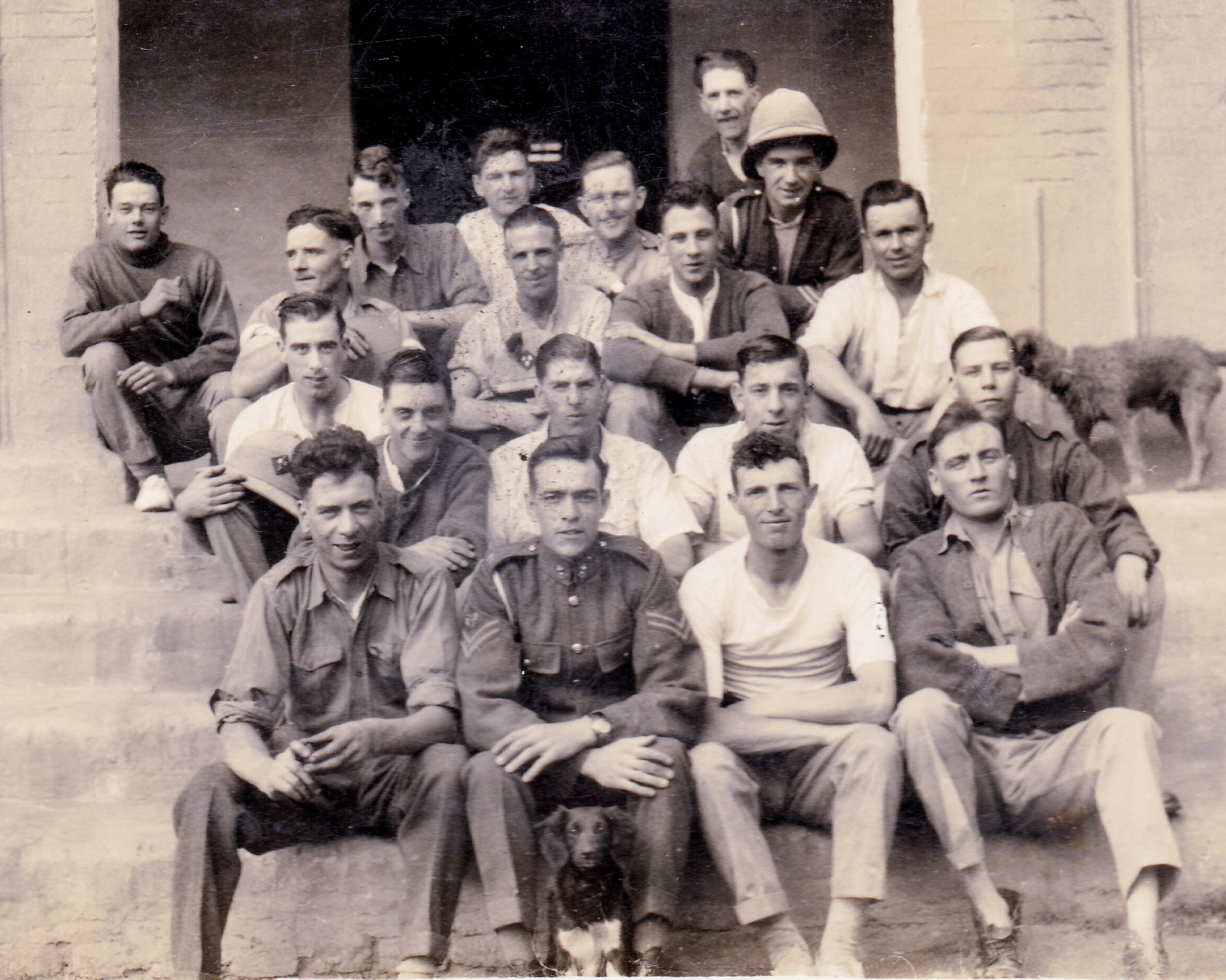
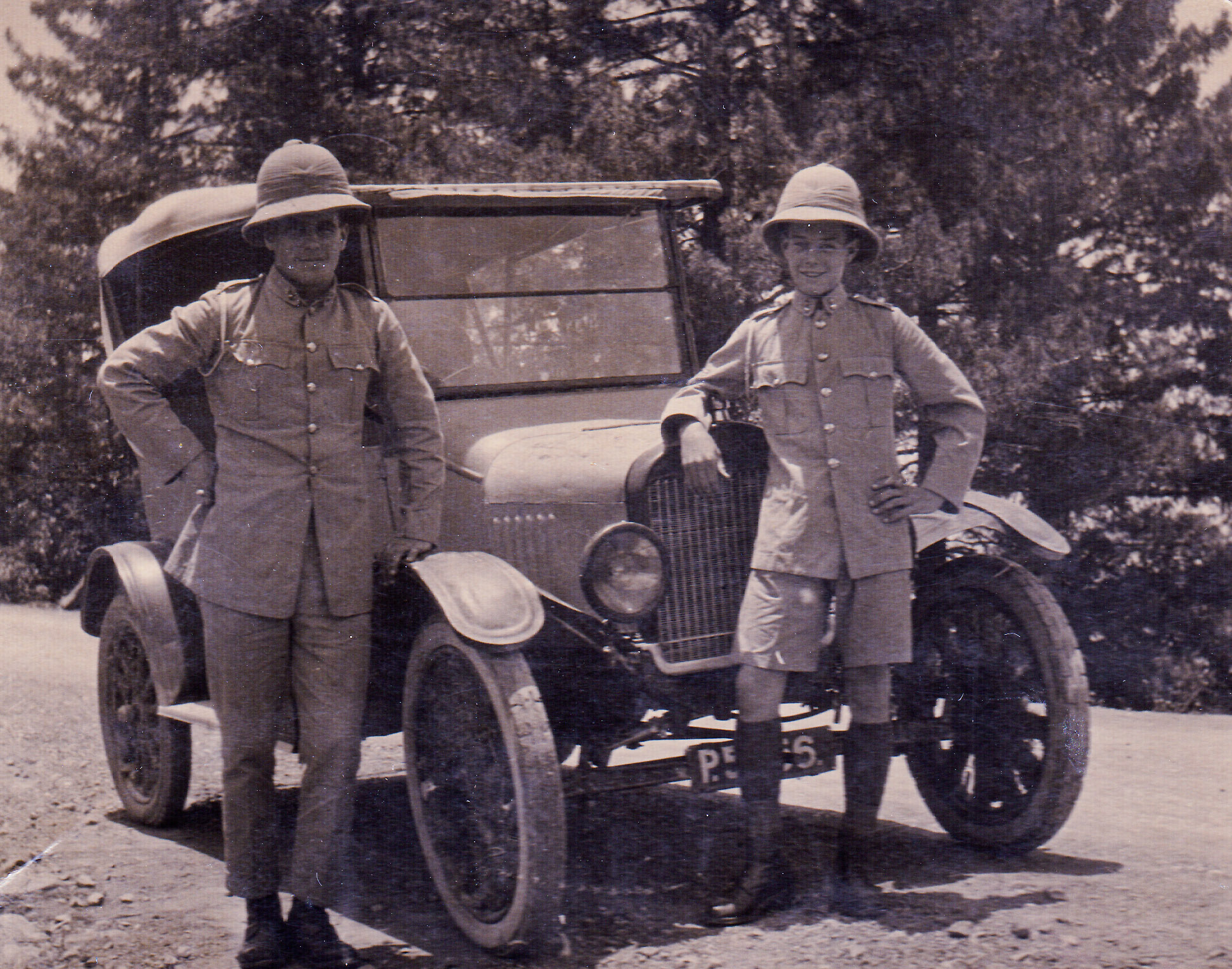
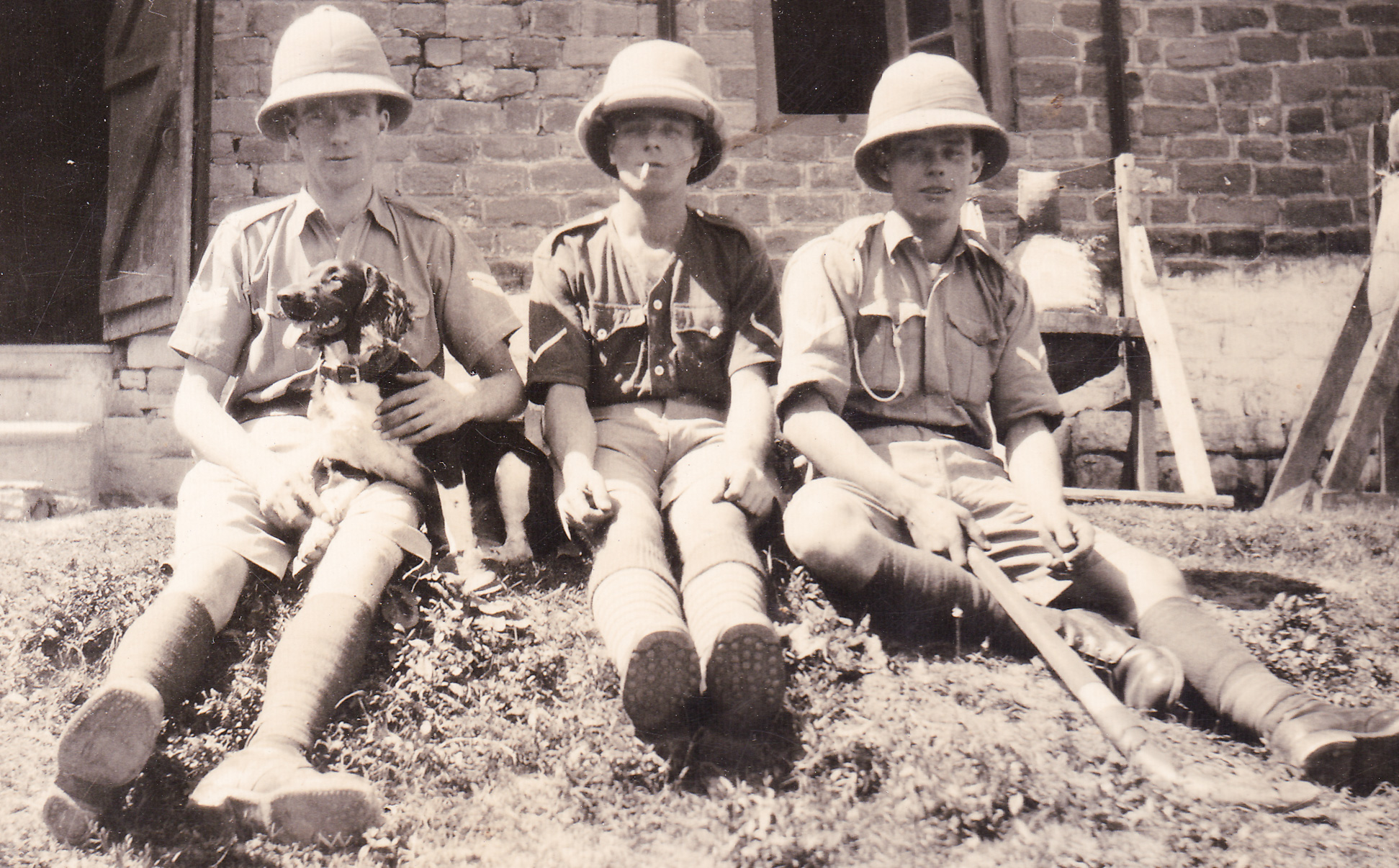
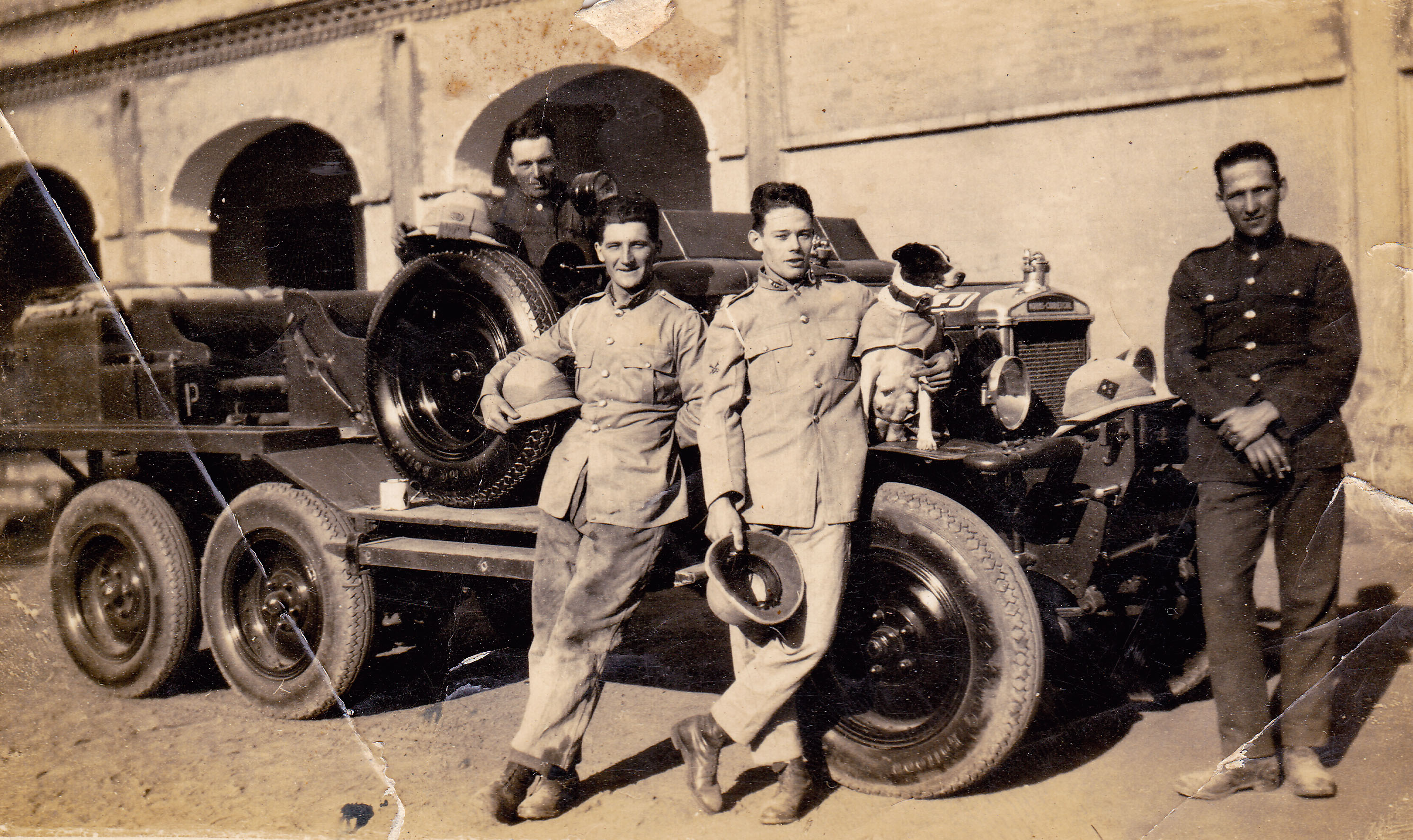
Even when home in Chingford, London Len was in close proximity to guns. In this photo he is with his two step brothers, his step father, mother and his two daughters. L-to-R back row: Melville Richard Snell, Leonard Alfred Theodore Birch, Sydney Mostyn Snell, Melville Dundas Westmorland Fane Snell. Front row: Mary June Birch, Annie Janet (Waterlow) Birch Snell, Anne Janet Birch. c.1937:
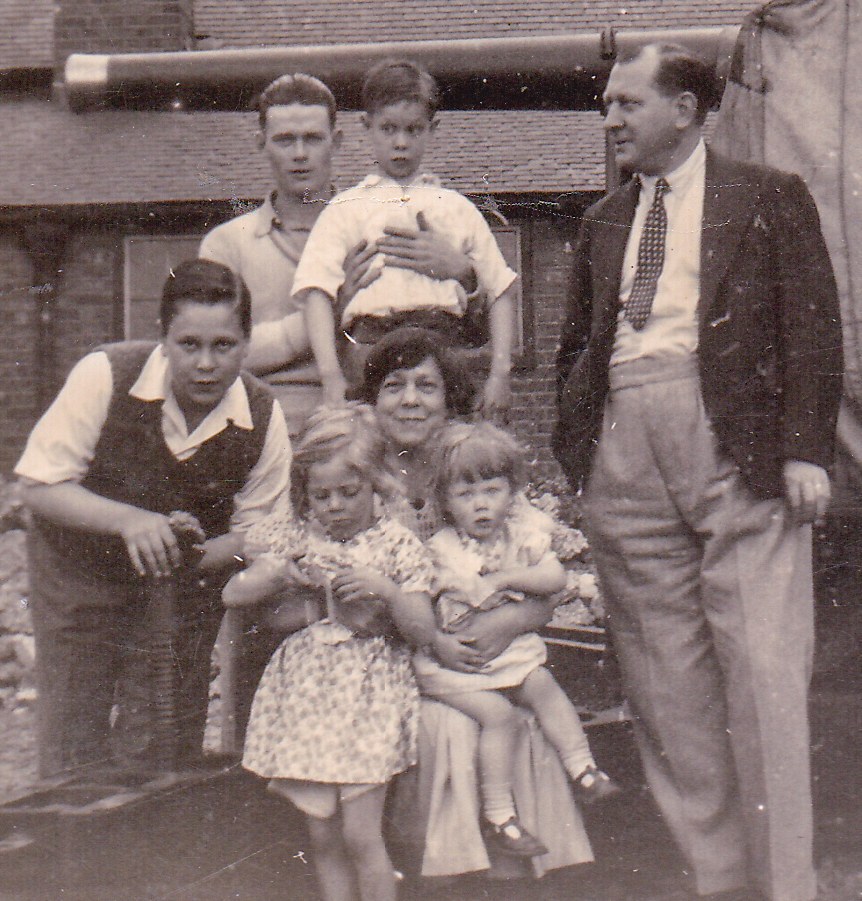
In World War II his service was in North Africa and the Middle East: Bardia (now Bardiyah, Libya), Caputz, Haifa and Tel Aviv (Palestine, now Israel):
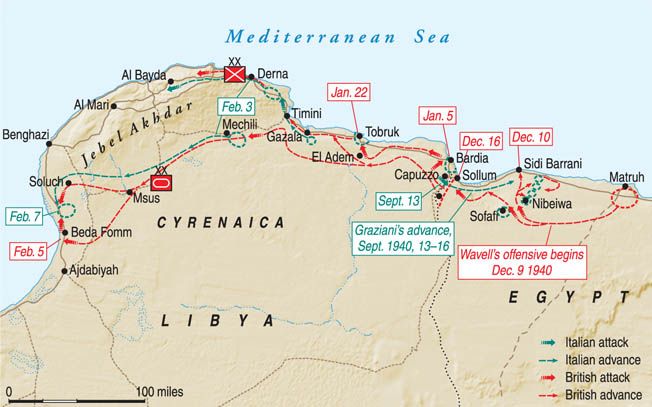

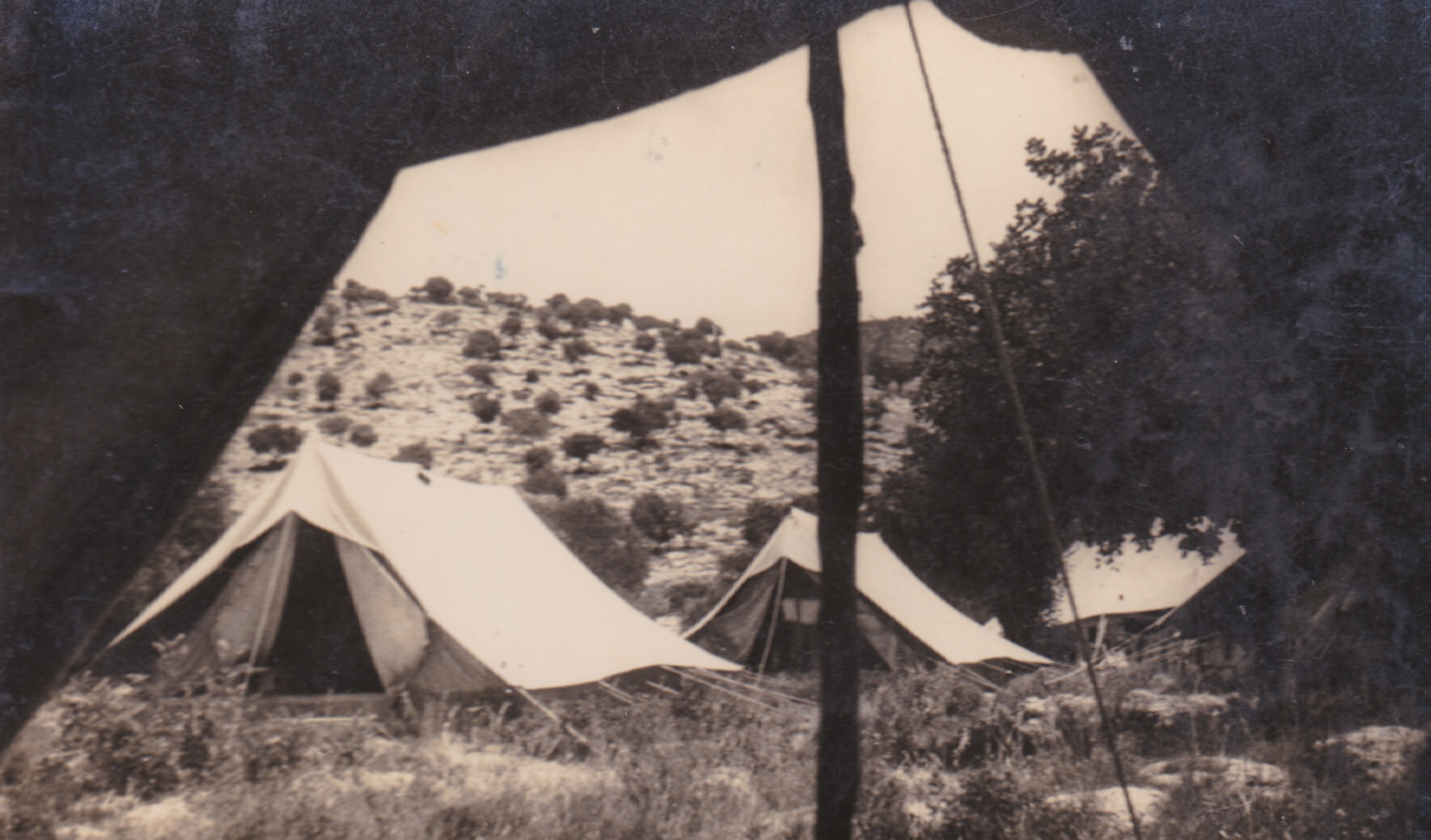

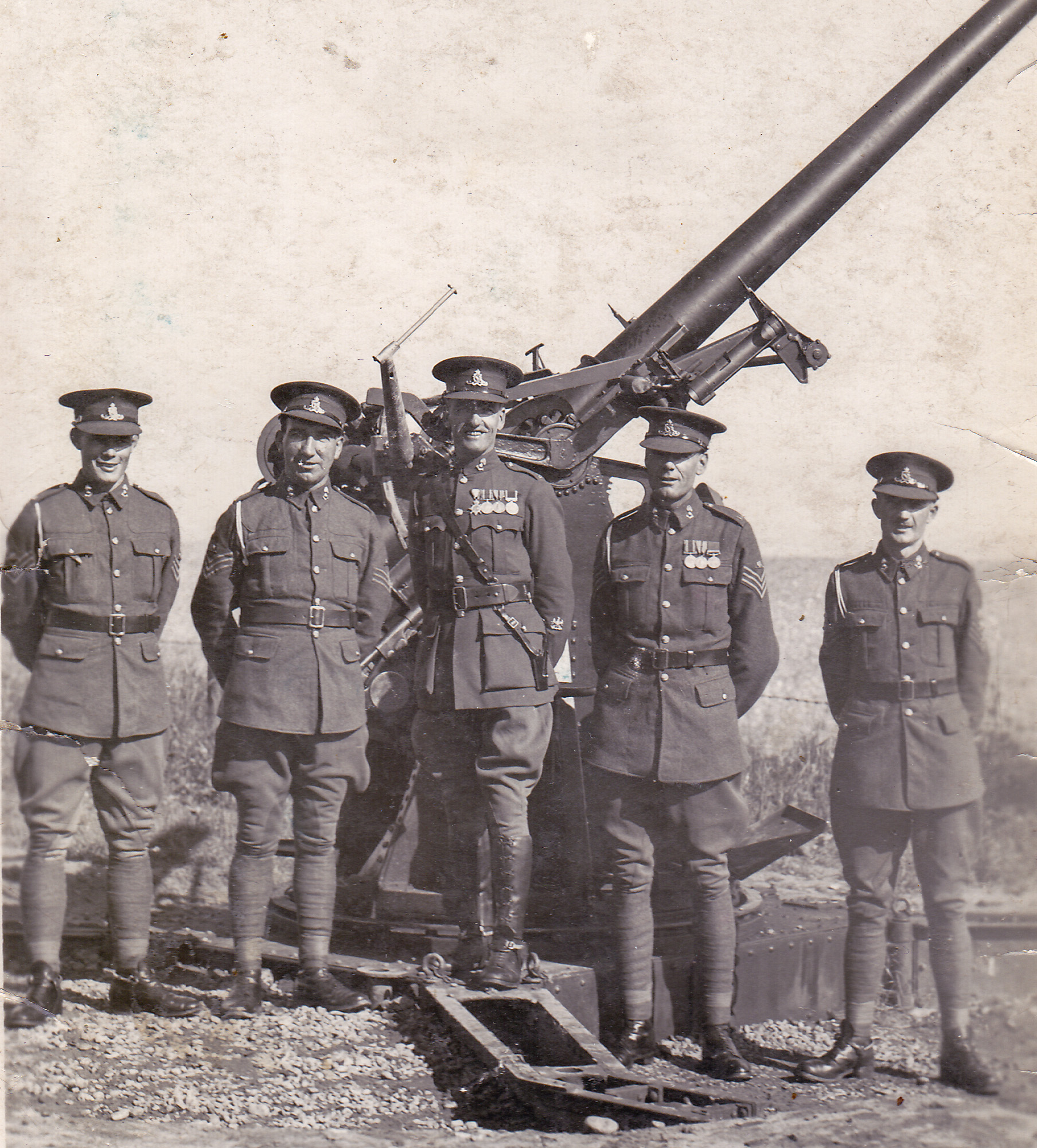
After his time in the army Len moved into radios. Here in Len's own handwriting is his career prior to emigrating to New Zealand.
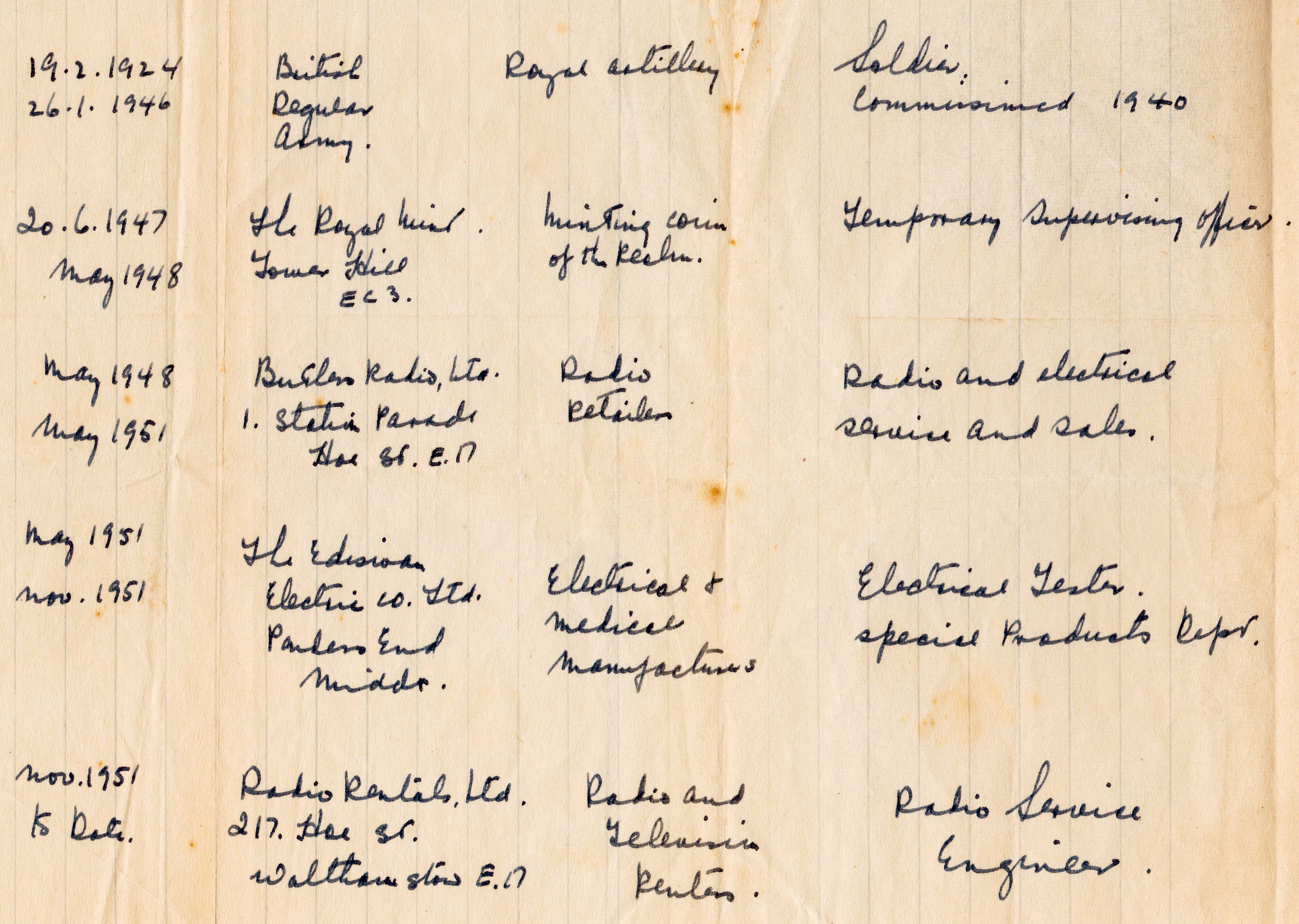
Len's army chum Andy
Andy Anders seems to have called Len by a nickname "Badgie" or "Badge". This shows up in two postcards.
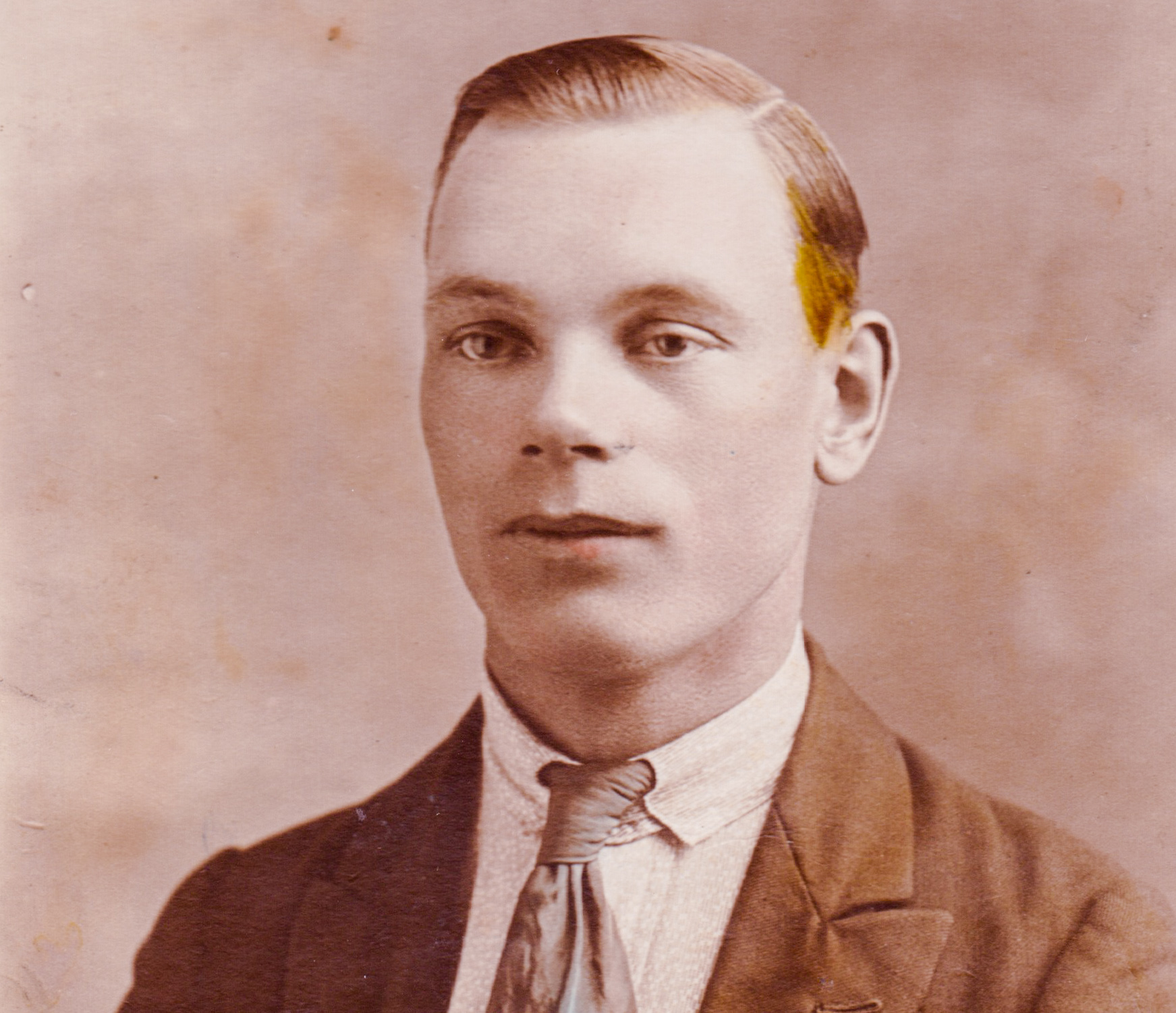
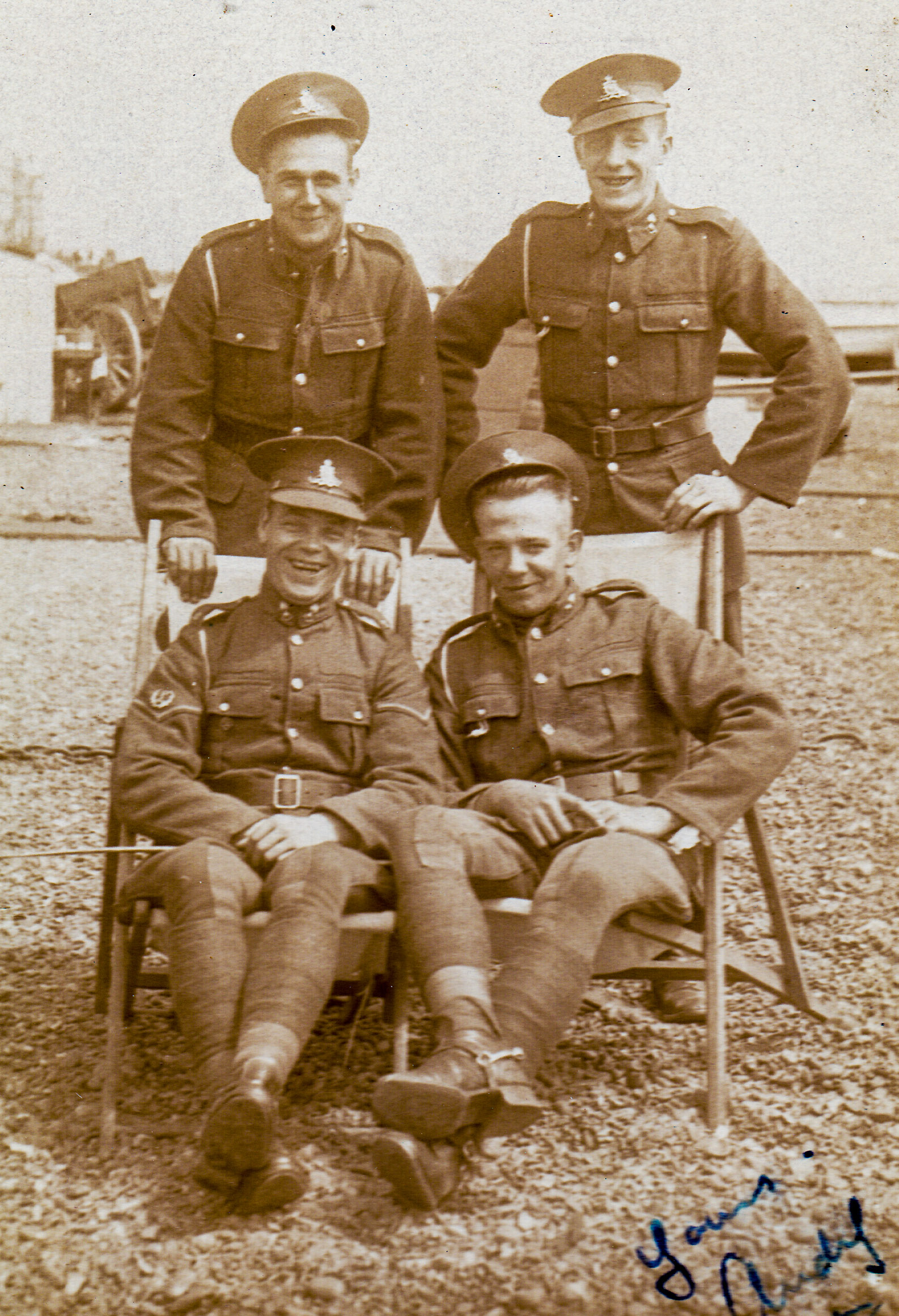
Elijah Catchpole
Len's father in law, Elijah Catchpole, not only served in the Royal Artillery but also served in India:
- On 22 Nov 1893 he was attested (joined) at the age of 23 years at Great Yarmouth, England. The attestation is interesting as it tells us he was 5 feet 4 inches tall, weighed 131 lbs with a "fresh" complexion, "grey" eyes and "dark brown" hair. He had a scar below his right eye and another scar at the outer corner of his right eye.His religious denomintaion was Church of England.
- On 18 July 1895 at Okehampton, England at the rank of "Driver" he was caught: Sleeping on his post when Sgt Smith Sentry ... (unreadable) His punishment was "21 days C.B." (confined to barracks) awarded on 19 July 1895.
- On 11 Oct 1895 he arrived in india and would be there for over 10 years until 8 Mar 1906.
- 1897-98 he served in the North West Frontier Campaign in India.
- On 10 Jan 1901 he was certified at the Royal Artillery Office at Nawal Pindi, India.
- On 8 Jan 1912 he was discharged as "medically unfit" from the Royal Hospital, Chelsea, England.
From his service he was awarded the India Medal 1895, clasps "Punjab Frontier 1897-98", Tirah 97-989.
Elijah's son, also Elijah Catchpole, was also in the military:
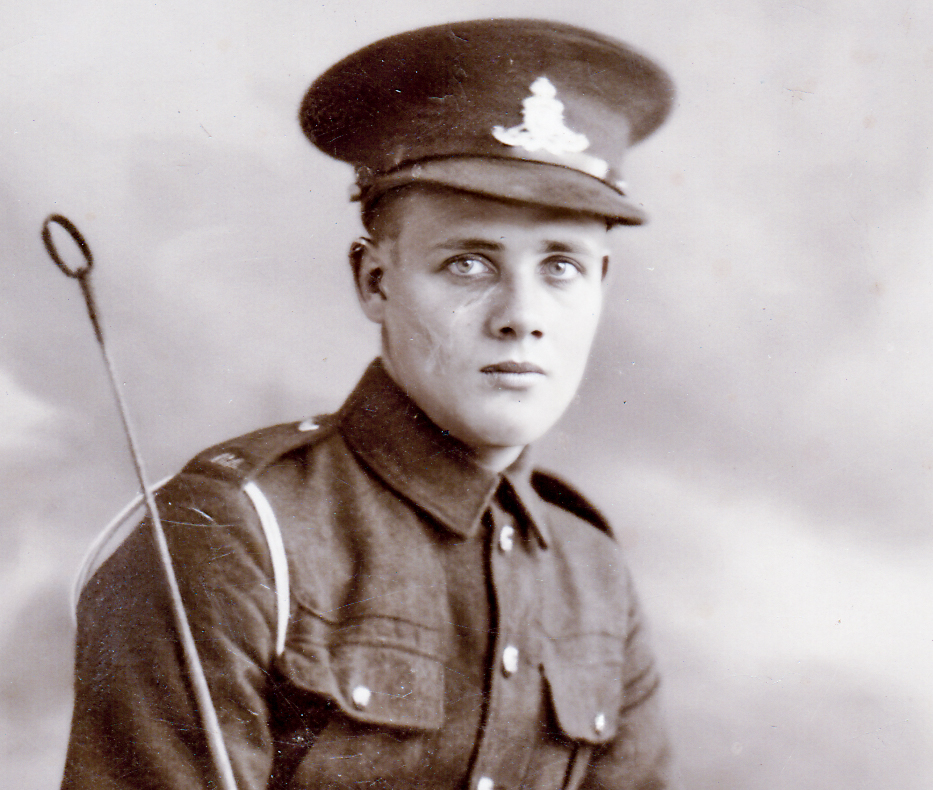
Fateful Messages For Scottish Mother: Soldier Son's Death - Telegrams That Brought Sorrow (The People's Journal)
BEHIND the death of a young Edinburgh soldier, as a result of injuries sustained while exercising his horse, lies a moving story of how a series of telegrams acquainted the young man's mother of his fate.
The telegrams numbered three, and to the youth's mother they represented three instalments of agony - instalments of a story which was opened and tragically concluded all within the period of two hours.
The first telegram intimated that the young man was dangerously ill, the second that he had been taken to hospital, and the third announced his death.
SEPARATELY, the blow delivered by each telegram was a heartrending one, and their cumulative effect was devastating, the young man's mother giving way under the strain to which she had been subjected.
The victim of the mishap was Driver Elijah Catchpole (22), of the Royal Artillery, stationed at Fort Dunree. Fort Dunree, which is in Donegal, is one of the Irish Free State forts on Lough Swilly garrisoned by British artillery.
Knocked Down by Horse.
Catchpole was exercising his horse when it stumbled, knocked him down, and then rolled on top of him. Witnesses of the accident immediately rushed to the assistance of the young man, who was found to be unconscious. He was removed by ambulance to Londonderry Infirmary, where he died two hours later without regaining consciousness.
The eldest son in a family of five, Catchpole's home was at 31 Stenhouse Place East, Edinburgh, and when I called and saw his mother this week there was revealed to me the dramatic story of the telegrams.
"I had been visiting a friend at the Royal Infirmary," she told me, "and when I returned home at about half-past two I was met by my daughter Betty, who told me that a telegram had arrived which contained bad news.
I asked to be shown the telegram, and this is what I read: 'Driver Catchpole dangerously ill. Suffering from concussion.' It was signed by the commanding officer.
The Second Message.
"I was stunned, but there was nothing I could do - just sit and wait for further news praying all the while that my son's recovery would be effected.
"An hour and a half passed - the longest 90 minutes I have ever experienced. Then came a knock at the door. I went to answer it, and saw a telegraph messenger boy, who handed me the familiar buff envelope. 'Is there any answer?' he asked. I did not immediately reply, for I dreaded to learn the nature of the message. Then, with trembling fingers, I tore open the envelope.
Driver Catchpole in County and City Infirmary, Londonderry,' I read. 'There's no answer,' I said to the telegraph boy, and, hardly knowing what I was doing, I moved into the living-room and sat down just before my legs gave way beneath me. "I realised that Elijah's condition must be grave, and I would have given anything to have been at his side. I wanted to get out of the house - move about - do anything which would take my mind off that sick boy lying in hospital.
"But I was not kept long in suspense Half an hour later there came another knock at the door. I could not bring my self to answer it, and sent my son Bobby to do so. As I had expected, he returned with a telegram. 'Shall I open it mother?' he asked. 'Yes, son,' I said, 'read it out to me.' Dimly Dimly I caught the words, 'Driver Catchpole died at 3 p.m. to-day.' A little later in the evening official notification of their son's death was conveyed to Mr and Mrs Catchpole by the police.
Determined to Get Work.
The young man's untimely death puts an end to a life which was not lacking in adventure. At the age of 16 he went out to Canada under an assisted emigration scheme. He remained there for two years doing farm work, but, dissatisfied with the conditions, he returned to this country.
Paying his own passage back, he landed at Liverpool, from which town he wrote to his parents, stating that he was determined to get work of some sort rather than that he should be dependent upon them.
He was as good as his word, for it was at Liverpool that he enlisted with the Royal Artillery, and, after receiving his training at Woolwich, he went with his regiment to Ireland.
His first visit home since his departure to Canada was in September last, when he returned on a month's holiday, and on that occasion he spoke to his parents in glowing terms of his life in the army.